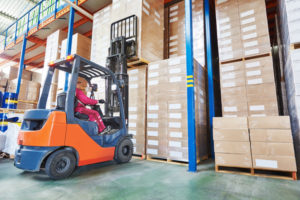
You might not know this, but overturning and tipping over is one of the biggest risks for forklift operators. It is the management responsibility to have these issues fixed and get a forklift that has a working seat belt. If there is no seatbelt attached to the forklift, the operator should report this to the management. 𝗧𝗶𝗽 #𝟰 Forklift operators should wear a seat belt if one is available! (𝟮) Dedicating a time to take all the team members together on a 𝗽𝗵𝘆𝘀𝗶𝗰𝗮𝗹 𝘁𝗼𝘂𝗿 and showing the above aspects in action.Ĭombining these two approaches will ensure they develop a very good understanding of risks and hazards associated with forklift operations.Īs with anything else, these training materials should be reviewed, updated, and changed regularly to accommodate the changing needs of a business and to comply with WHS standards. It helps in developing a good understanding of the risks associated with forklifts and they can walk away knowing I recommend taking the following two approaches to better educate your staff and help make your workplace safe for everyone. To raise awareness around these safety issues, you can implement many things. Now that you have a better understanding of the reasons WHY an operator may not be able to see or notice you, it is time to discuss the next part, education, and training. 🟥 If the operator is 𝗱𝗿𝗶𝘃𝗶𝗻𝗴 𝗯𝗮𝗰𝗸𝘄𝗮𝗿𝗱𝘀 because of carrying two pallets or driving through a slope 🟥 𝗕𝗹𝗶𝗻𝗱 𝘀𝗽𝗼𝘁𝘀 in areas such as corners, exits, staging area, big loads, narrow aisles etc - all these things affect the vision of the operator 🟥 𝗣𝗼𝗼𝗿 𝗹𝗶𝗴𝗵𝘁𝗶𝗻𝗴 in some areas or throughout the Warehouse or Distribution Centre (DC) 🟥 𝗡𝗼𝗶𝘀𝗲 - makes it harder to notice people and other moving objects There can be many reasons for that, but here are some of them: "That the forklift operators may not be able to see or notice them, while they are operating the forklift trucks."
#Warehouse forklift safety drivers
𝗧𝗶𝗽 #𝟯 Employees Being Aware of the Visibility by Forklift Drivers 🔲 Brakes are working and stopping the machine on timeīy doing these simple yet effective prestarts and post-start safety checks, you are helping in ensuring a safe workplace for everyone.Ī win-win for everyone at the end of the day. 🔲 Lifting and bringing down the forks are operating without any issues

🔲 The mast is tilting backward and forward without any issues 🔲 Left and right indicators and their corresponding lights are working 🔲 Lights are flashing when reversing with a beeping sound to alert people in the surrounding area Once the prestart checks are completed, the operator then should put the key in to start the machine and conduct post-start safety checks. This helps in ensuring safety for all personnel on-site and warehouse property and therefore reducing the likelihood of potential harm to people and property.

🔳 Checking seat belt for its reliability 🔳 Checking the charging area for battery leaks 🔳 Disconnecting the battery safely from the charger (if it is left on a charge from a previous shift or overnight) 🔳 Informing the Safety Officer/Senior team member of any issues, after the machine is tagged out 🔳 Tagging and reporting a faulty machine 🔳 Filling a Logbook (if there is one in place)
#Warehouse forklift safety how to
The following video (18 min) goes into much more detail on how to do these checks.īefore the operator turns on the forklift machine, it should be checked for key safety areas, by doing a visual inspection.

You will learn about both in more detail. This includes Pre-Start and Post-Start checks. Two types of safety checks need to be completed before operating any forklift.


 0 kommentar(er)
0 kommentar(er)
